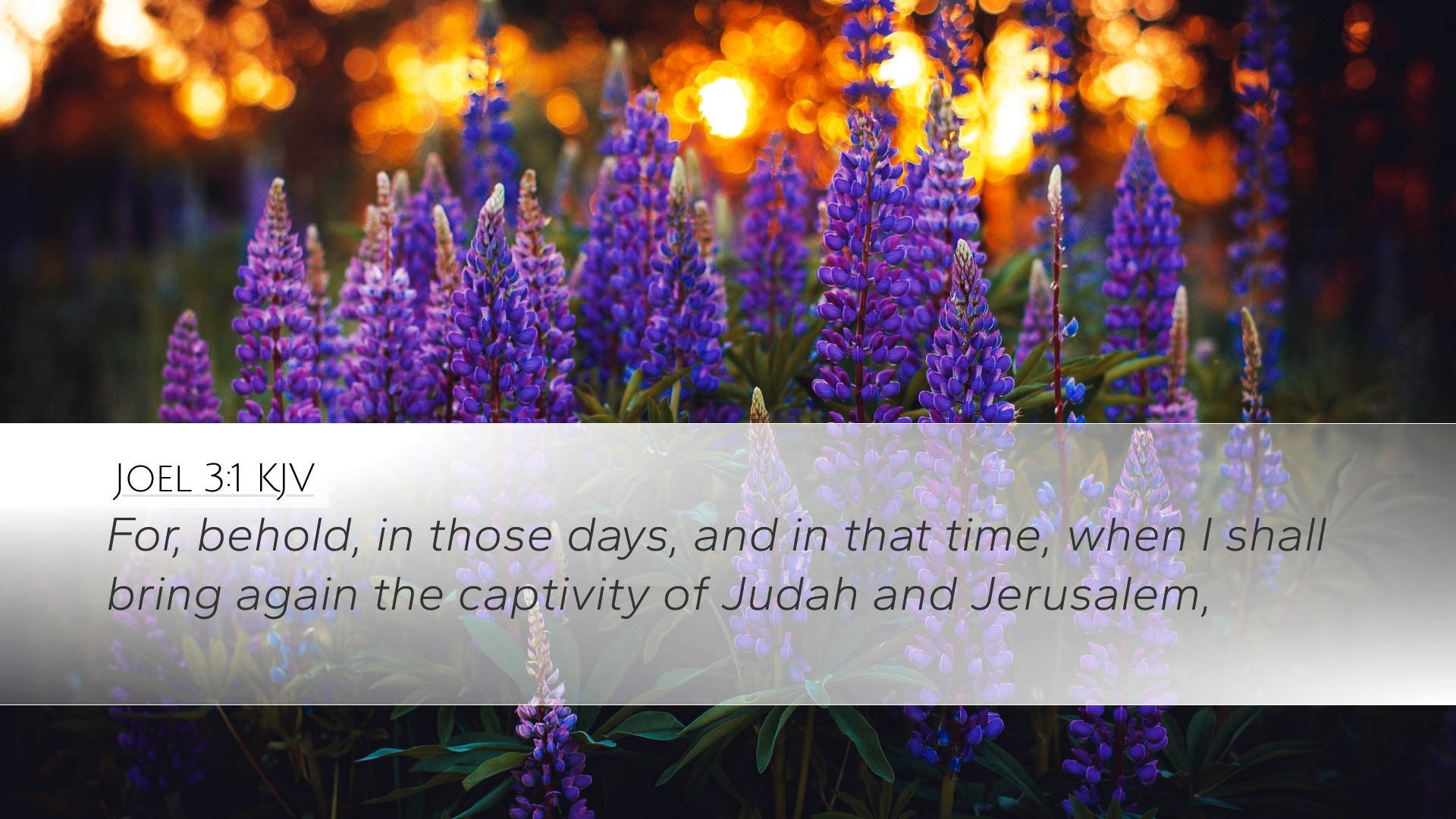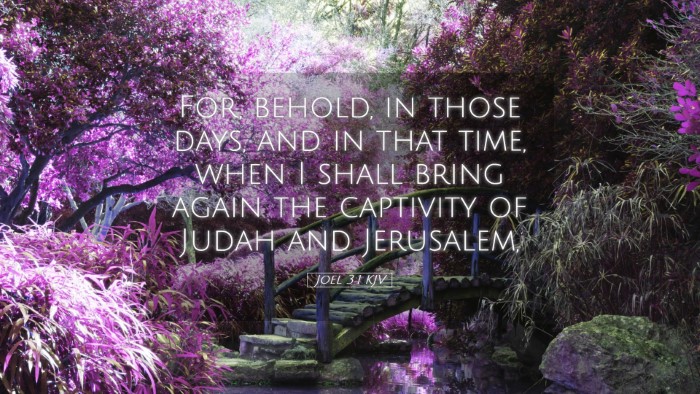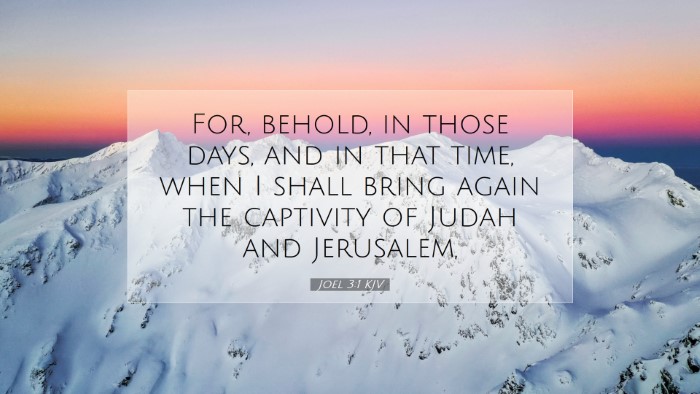Old Testament
Genesis Exodus Leviticus Numbers Deuteronomy Joshua Judges Ruth 1 Samuel 2 Samuel 1 Kings 2 Kings 1 Chronicles 2 Chronicles Ezra Nehemiah Esther Job Psalms Proverbs Ecclesiastes Song of Solomon Isaiah Jeremiah Lamentations Ezekiel Daniel Hosea Joel Amos Obadiah Jonah Micah Nahum Habakkuk Zephaniah Haggai Zechariah MalachiJoel 3:1
Joel 3:1 KJV
For, behold, in those days, and in that time, when I shall bring again the captivity of Judah and Jerusalem,
Joel 3:1 Bible Commentary
Commentary on Joel 3:1
Verse: "For behold, in those days and at that time, when I restore the fortunes of Judah and Jerusalem."
Introduction
The Book of Joel is a prophetic text rich in imagery and theological significance. Joel prophesies not only about the immediate restoration of Israel after calamity but also anticipates a greater future fulfillment associated with the Day of the Lord. Joel 3:1 serves as a pivotal verse in this context, signaling a divine promise of restoration.
Contextual Background
The context of Joel's prophecy is critical for understanding the implications of this verse. The preceding chapters deal with locust plagues, drought, and the consequences of sin, serving as both judgment and a call to repentance. The restoration mentioned in this verse follows a period of great distress and is contingent upon the people turning back to God.
Thematic Insights
- Restoration: Joel speaks of a future time when God will restore fortunes, indicating a reversal of previous misfortunes. Matthew Henry notes that this restoration is comprehensive, impacting both socio-economic conditions and the spiritual state of the people.
- Specificity of Time: The phrase "in those days and at that time" is climactic. Barnes elaborates on the significance of this timing, indicating it points toward a divinely appointed period when God's grace will be poured out upon His people.
- Judah and Jerusalem: The specificity of Judah and Jerusalem highlights the particular focus on the covenant people of God. Clarke emphasizes their identity and the implications of their restoration not only socially but also in covenantal terms.
- The Day of the Lord: This verse acts as a prelude to the greater Day of the Lord narrative, which encompasses judgment and salvation. The prophetic echoes in this verse resonate with eschatological themes found in the New Testament.
Theological Implications
The theological implications of Joel 3:1 extend beyond its immediate historical context:
- Divine Sovereignty: The promise of restoration showcases God's sovereign ability to redeem His people. Henry articulates that this demonstrates God's power and willingness to intervene in human history for the sake of His covenant.
- Call to Repentance: The backdrop of repentance and humility underscores the need for returning to God, which Clarke highlights. The restoration is contingent upon a heart turned towards the Lord.
- Hope in Despair: This verse provides a profound hope that God can and will restore what has been lost. It serves as a reminder that God's mercy is greater than human failure, a theme Mills on and highlights.
- New Covenant Fulfillment: Many theologians see a direct connection to the New Covenant established in Christ, where the implications of restoration are expanded to encompass all believers, not just Israel.
Application for Today
The message of restoration in Joel 3:1 can be particularly meaningful for contemporary believers:
- Encouragement in Crisis: Just as Judah looked forward to restoration, modern believers can find solace in God’s promise to be present and restore in their lives amid crises.
- Community Renewal: This passage calls attention to the importance of community in restoration processes, emphasizing corporate repentance and restoration as vital aspects of the church's mission today.
- Faith in Action: Application of this verse invites believers to engage in active faith, trusting that God will fulfill His promises and calling them to act in faith during trials.
- Eschatological Hope: The eschatological dimension encourages a forward-looking faith, where believers anticipate the ultimate fulfillment of God’s promises at the end of time.
Conclusion
Joel 3:1 serves as a profound articulation of God’s redemptive promise to His people. Through rich theological insights and practical applications drawn from historical context and prophetic literature, this verse encapsulates the heart of God’s desire for restoration and hope. For pastors, students, theologians, and scholars, Joel 3:1 challenges and encourages us to recognize the depth of God’s mercy and the transformative power of His promises.


